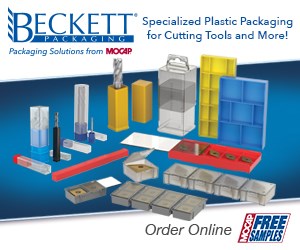PMPA Joins OSHA To Defeat MWF Lawsuit
On March 22, 2004, the Third Circuit Court of Appeals in Philadelphia refused to order the Occupational Safety and Health Administration (OSHA) to promulgate a health standard regulating worker exposure to metalworking fluid (MWF) mists. The suit had been brought by the United Auto Workers (UAW) and the United Steelworkers unions. In a strange turn of events, the Precision Machined Products Association found itself on OSHA’s side in this legal action.
On March 22, 2004, the Third Circuit Court of Appeals in Philadelphia refused to order the Occupational Safety and Health Administration (OSHA) to promulgate a health standard regulating worker exposure to metalworking fluid (MWF) mists. The suit had been brought by the United Auto Workers (UAW) and the United Steelworkers unions. In a strange turn of events, the Precision Machined Products Association found itself on OSHA’s side in this legal action. PMPA joined with the Independent Lubricant Manufacturers Association, the National Tooling & Machining Association and the Precision Metalforming Association as interveners supporting OSHA’s position. The position was that the Secretary of Labor has discretion to prioritize the regulation of toxic substances, and that the proven health effects of MWF exposure did not present the same serious problems as no other substances on which OSHA preferred to expend its limited regulatory resources.
The decision was a total victory for PMPA and the other interveners who rebutted the health effects assertions made by the unions in their brief. The court noted that the 15-member OSHA MWF Standards Advisory Committee (MWFSAC), which included the writer, did not unanimously agree on the best way to reduce workers’ exposure to MWFs.
During MWFSAC deliberations, the writer was adamant in his refusal to agree to “consensus positions” proffered by public sector and academic representatives who were angling for a unanimous statement indicting MWF exposures as the sole cause of a range of diseases, including occupational asthma, hypersensitivity pneumonitis, various cancers, dermatitis and other health problems.
With support from NTMA’s John Cox, Frank White of Organization Resources Counselors, and John Howell (then of Castrol Industrial Lubricants), we insisted that causal connections between exposure to MWF mists and serious health problems must be shown before OSHA is statutorily allowed to regulate. In the absence of that proof, the unions and their supporters relied on anecdotal information showing that some people will exhibit a reaction to MWF mist exposures at some level of exposure.
The unions’ weak case, in the end, was not enough to convince the court that its judgment should be substituted for that of the Secretary of Labor.
Even though proponents of stricter MWF mist exposure regulation have been defeated at the agency level, and now at the court level, it remains to be seen whether this puts to rest any question about the need for additional regulation of MWF mists.
Is this the end? The unions can ask the entire Third Circuit to rehear the case, or they can petition for review to the Supreme Court. Given this court’s decision, it is unlikely that the unions will pursue either course. The “low cost” strategy, in terms of precedent, would be for the unions to ask for an “en banc” ruling by the entire Third Circuit; the unions have 30 days from March 22 to make that request.
PMPA will continue to monitor the issue, and any new scientific studies, and will remain vigilant in our mission to protect U.S. manufacturers from unnecessary and costly regulations.
Read Next
Seeing Automated Workpiece Measurement in Real Time
User-friendly inspection software for CNC machining centers was shown at IMTS 2024 monitoring measurements between and after machining while performing SPC based on recorded measurement values.
Read MoreDo You Have Single Points of Failure?
Plans need to be in place before a catastrophic event occurs.
Read MoreA Tooling Workshop Worth a Visit
Marubeni Citizen-Cincom’s tooling and accessory workshop offers a chance to learn more about ancillary devices that can boost machining efficiency and capability.
Read More
















